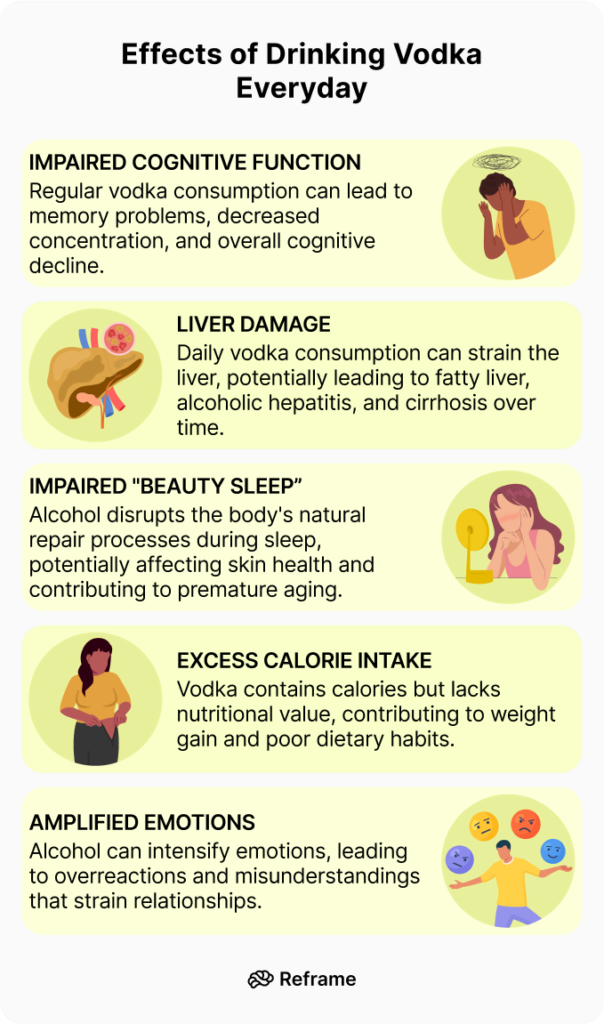Ever wondered what happens to your body after one shot of vodka? While a single shot might seem like a harmless indulgence, it’s important to understand the potential effects and risks associated with alcohol consumption. This article delves into the science behind how vodka affects your body, explores the dangers of excessive drinking, and provides guidelines for responsible alcohol consumption.
This comprehensive guide will cover various aspects of what will one shot of vodka do to you, from its immediate physiological effects to long-term health consequences. We’ll also discuss factors influencing individual responses to alcohol, such as body weight, metabolism, and tolerance. By the end of this article, you’ll have a clearer understanding of the complexities surrounding alcohol consumption and be equipped to make informed decisions about your drinking habits.
Effects of One Shot of Vodka
A single shot of vodka can trigger a cascade of physiological changes in your body. The primary active ingredient in vodka is ethanol, which is rapidly absorbed into your bloodstream through the stomach lining and small intestine. Within minutes, ethanol reaches your brain, influencing neurotransmitters responsible for mood, cognition, and motor function.
One common effect of one shot of vodka is a feeling of relaxation or euphoria. This is due to ethanol’s ability to enhance the effects of GABA, an inhibitory neurotransmitter that slows down brain activity. However, as alcohol consumption increases, these effects can become more pronounced and lead to impaired judgment, coordination, and reaction time.
Beyond mood alterations, vodka can also affect your physical sensations. You might experience a warming sensation initially, followed by flushing or redness in the face. This is due to blood vessel dilation caused by ethanol. Additionally, alcohol consumption can suppress your digestive system, leading to nausea or vomiting if you consume too much.
Risks of Drinking Vodka
While moderate alcohol consumption may have some potential health benefits for certain individuals, excessive vodka drinking poses significant risks to both physical and mental well-being.
One major concern is the development of alcohol dependence or addiction. Regular heavy drinking can lead to changes in brain chemistry, making it increasingly difficult to control your alcohol intake. This can result in a cycle of cravings, withdrawal symptoms, and continued reliance on vodka to cope with stress or emotional distress.
Furthermore, chronic alcohol abuse can damage vital organs such as the liver, heart, and pancreas. It increases the risk of developing serious health conditions like cirrhosis, cardiomyopathy, pancreatitis, and certain types of cancer. Additionally, excessive vodka consumption can weaken your immune system, making you more susceptible to infections and illnesses.
Vodka Tolerance and Metabolism
Individual responses to one shot of vodka vary widely due to factors such as body weight, metabolism, and tolerance.
Body weight plays a significant role in determining how quickly alcohol is absorbed and processed. Individuals with higher body mass tend to have a lower blood alcohol concentration (BAC) after consuming the same amount of alcohol compared to those with lower body weight. This is because there’s more water and tissue mass to dilute the alcohol.
Metabolism also influences alcohol tolerance. Some people naturally metabolize alcohol faster than others due to genetic variations or lifestyle factors. Those who metabolize alcohol quickly may experience less pronounced effects from a single shot of vodka compared to those with slower metabolisms.
Tolerance, which develops over time with repeated alcohol consumption, can lead to individuals needing to consume larger amounts to achieve the desired effects. This can be dangerous as it increases the risk of overdose and other adverse consequences.
Responsible Drinking Guidelines
To minimize the risks associated with one shot of vodka, it’s crucial to practice responsible drinking habits.
One key guideline is to know your limits. Pay attention to how your body reacts to alcohol and stop consuming it if you start feeling intoxicated. It’s also important to pace yourself by sipping slowly and alternating alcoholic beverages with water or non-alcoholic drinks.
Avoid drinking on an empty stomach as this can accelerate alcohol absorption. Eating a meal before consuming vodka can help slow down the process and reduce the intensity of its effects. Additionally, be mindful of your environment and avoid situations where you feel pressured to drink more than you’re comfortable with.
Alcohol Impairment Symptoms
Recognizing the signs of alcohol impairment is essential for ensuring your safety and the well-being of those around you.
Some common symptoms include slurred speech, slowed reaction time, impaired coordination, and difficulty concentrating. You may also experience mood swings, irritability, or aggression. If you notice these signs in yourself or someone else, it’s crucial to avoid driving or operating machinery and seek a safe environment.
Conclusion
While one shot of vodka might seem like a harmless indulgence, it’s important to remember that alcohol consumption can have both immediate and long-term effects on your body and mind. Understanding the risks associated with excessive drinking and practicing responsible consumption habits are crucial for safeguarding your health and well-being. Remember to always drink in moderation, know your limits, and prioritize your safety above all else.


![Industry Grey Holdings Inc.: Shaping the Future of [Relevant Industry]](https://nodumbquestions.net/wp-content/uploads/industry-grey-holdings-inc-shaping-the-future-of-relevant-industry-150x150.jpg)
